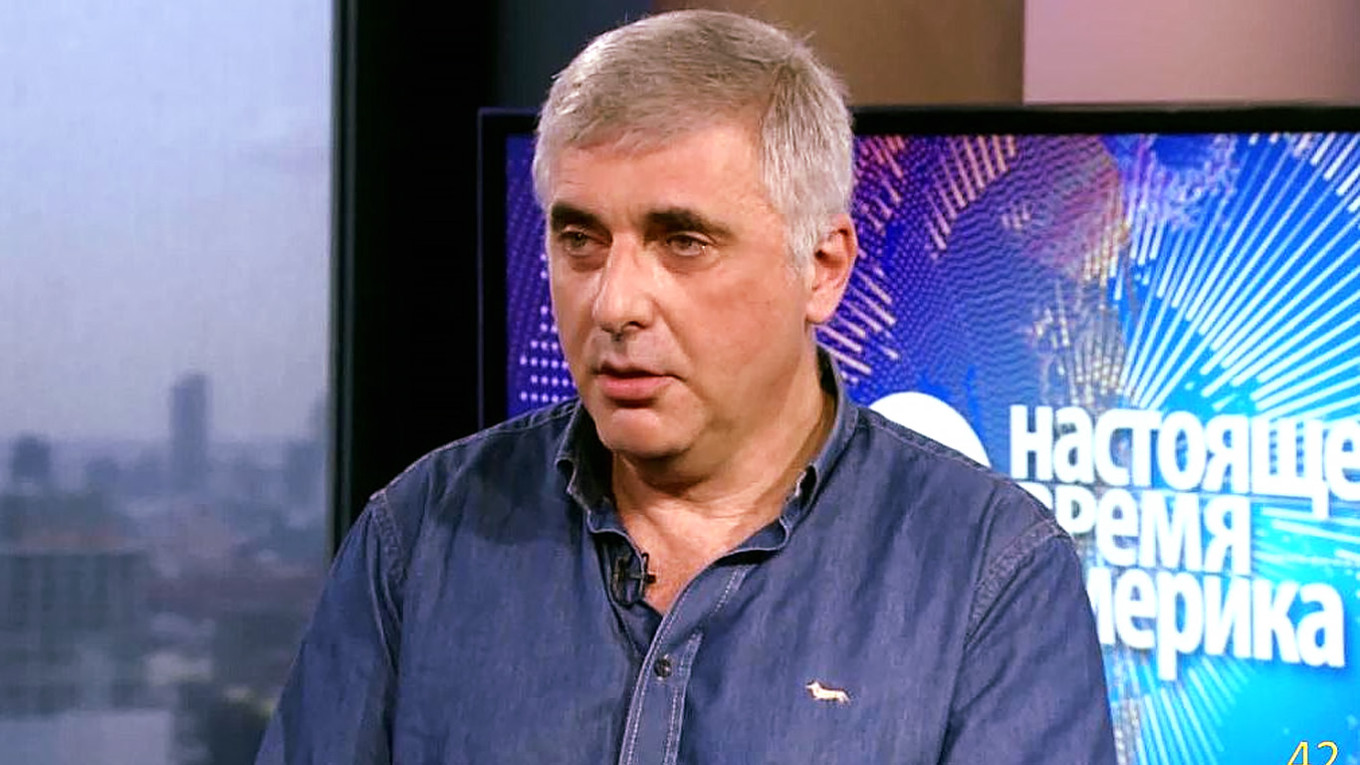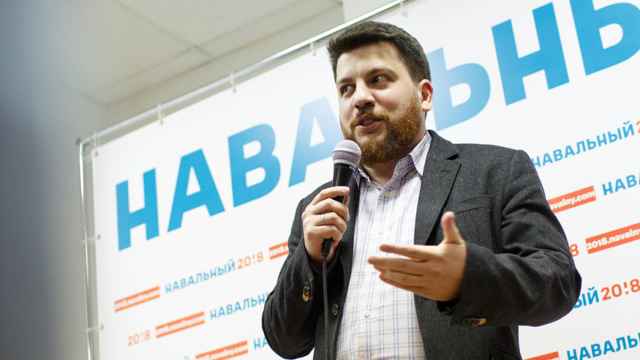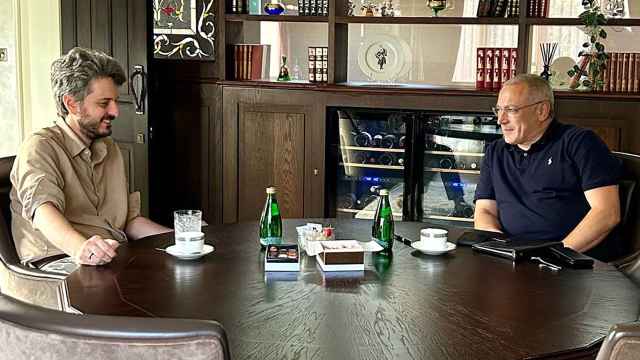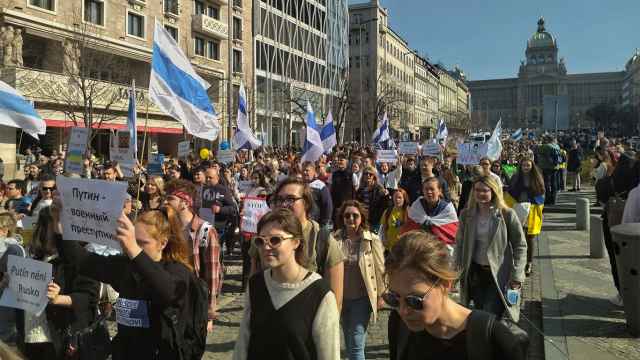Leonid Nevzlin, a Russian-Israeli businessman and outspoken Kremlin critic, was accused Thursday by late opposition figure Alexei Navalny’s team of ordering a number of attacks against Navalny allies.
Nevzlin, a close associate of exiled Kremlin critic Mikhail Khodorkovsky, was accused of ordering assaults against Navalny ally Leonid Volkov in Lithuania, Navalny aide Ivan Zhdanov in Switzerland and the wife of economist Maxim Mironov, Alexandra Petrachkova, in Argentina.
Team Navalny said it ended up with evidence of Nevzlin’s involvement from a “fixer” named Andrei Matus, who “disappeared” soon after learning that they would not be able to pay him and gave his information to the Kremlin-funded network Russia Today.
Nevzlin denied having involvement in “any attacks on people, in any form whatsoever,” adding that “justice will confirm the absurdity and complete baselessness of the accusations against me.”
Khodorkovsky said he believed that the information received by Team Navalny was an “FSB provocation.”
The Moscow Times looks at Nevzlin's biography:
Born in Moscow in 1959, Nevzlin began his career in the Soviet Union as a computer engineer. Amid the tumultuous years that followed the Soviet collapse, he transitioned to the business world, joining forces with Mikhail Khodorkovsky, one of Russia’s most powerful oligarchs at the time.
Together, they played key roles in building Yukos, which would become one of the largest oil companies in Russia, and Nevzlin would serve as an executive in the company and become one of its shareholders.
The company’s success was emblematic of Russia’s rapid economic transformation in the 1990s, but it also made its owners targets for the Kremlin.
In the early 2000s, Yukos became embroiled in legal battles that were widely seen as politically motivated, with President Vladimir Putin’s government accusing the company of large-scale tax evasion.
Nevzlin, who was listed by Forbes in 2004 as having a net worth of more than 1.3 billion euros, fled to Israel in 2003.
The Russian government has repeatedly attempted to extradite him from exile by issuing international arrest warrants.
Russian authorities charged Nevzlin in absentia with a range of serious crimes, which his lawyers said were politically motivated.
He was sentenced in 2008 in absentia to life in prison for ordering four killings of business rivals and officials, including the mayor of the Siberian town of Nefteyugansk, in his time at Yukos.
A Russian court also found him guilty of tax evasion and embezzlement of property.
Russian prosecutors have also accused Nevzlin of links to the killing of former KGB agent Alexander Litvinenko, who was poisoned in London in 2006. The prosecutor general claimed that traces of mercury had been found in Moscow and London and that this indicated a link to Nevzlin.
Since moving to Israel, Nevzlin has been engaged in philanthropic activities funding several education projects and local media as well as supporting initiatives that challenge the Kremlin’s policy in Russia.
Since the Kremlin’s full-scale invasion of Ukraine, he has been an active opponent of the war. But he is also known for making controversial statements, including one where he referred to the majority of Russia's population as “slave cattle.”
AFP contributed reporting.
A Message from The Moscow Times:
Dear readers,
We are facing unprecedented challenges. Russia's Prosecutor General's Office has designated The Moscow Times as an "undesirable" organization, criminalizing our work and putting our staff at risk of prosecution. This follows our earlier unjust labeling as a "foreign agent."
These actions are direct attempts to silence independent journalism in Russia. The authorities claim our work "discredits the decisions of the Russian leadership." We see things differently: we strive to provide accurate, unbiased reporting on Russia.
We, the journalists of The Moscow Times, refuse to be silenced. But to continue our work, we need your help.
Your support, no matter how small, makes a world of difference. If you can, please support us monthly starting from just $2. It's quick to set up, and every contribution makes a significant impact.
By supporting The Moscow Times, you're defending open, independent journalism in the face of repression. Thank you for standing with us.
Remind me later.







